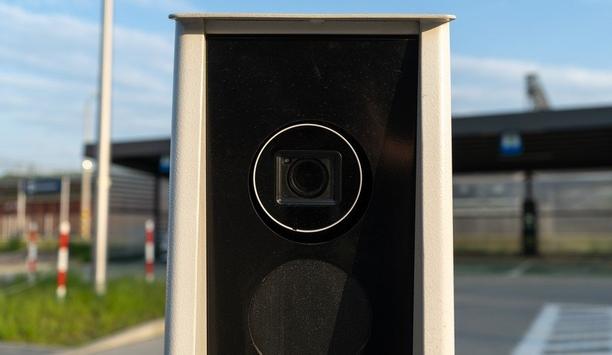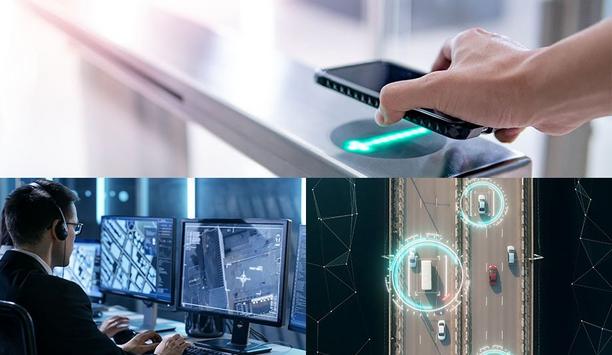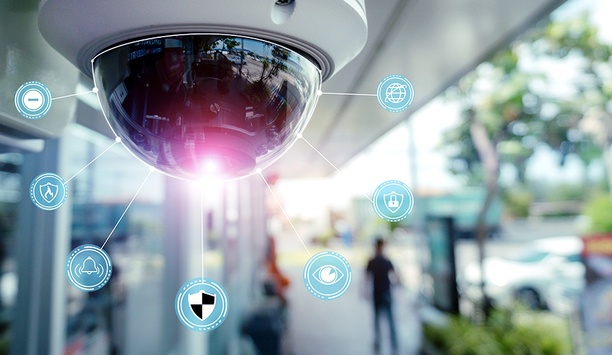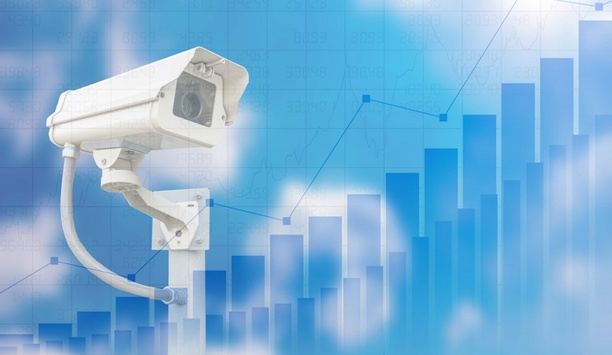License plate recognition - Round table discussions
In the United States, they are called license plate recognition (LPR) systems. In Europe, the more common term is automated license number-plate recognition (ANPR). In either case, the systems provide capabilities that can benefit a range of applications from schools to municipalities to parking lots. Newer technologies can even identify vehicle color, type, make, and model. We asked this week’s Expert Panel Roundtable: What's new with license plate recognition (LPR) and/or automated numbe...
As physical security technologies become more complex, it is incumbent on the dealer/integrator to have the skills and expertise needed to ensure that a system operates smoothly. The value of integrators increasingly rests on the skill sets they bring to bear when installing a system. If the skills are missing, there is a problem. We asked this week’s Expert Panel Roundtable: What missing skills among security integrators can cause problems for customers?
The advantages of security systems as forensic and investigative tools are well understood and demonstrated in the market. However, the new trend is toward systems that are useful in real-time and that even predict a security event, before it happens. We asked this week’s Expert Panel Roundtable: Which security systems are becoming more proactive than reactive?
Since the advent of the physical security industry, access control has been synonymous with physical cards, whether 125 kHz ‘prox’ cards or the newer smart card alternatives. However, other credentials have also come on the scene, including biometrics and even smart phones. Some of these choices have distinct cost and security advantages over physical cards. We asked this week’s Expert Panel Roundtable: How soon will the access control card become extinct and why?
“Deep learning” is recently among the more prevalent jargon in the physical security industry, and for good reason. The potential benefits of this subset of artificial intelligence (AI) are vast, and those benefits are only now beginning to be understood and realised. But how can we separate the marketing hype from reality? How can we differentiate between future potential and the current state of the art? To clarify the latest on this new technology, we asked this week’s Exper...
The idea of touchless systems has gained new levels of prominence during the last year, driven by the global COVID-19 pandemic. Contactless systems have been part of the industry’s toolbox for decades, while technologies like facial and iris recognition are finding new uses every day. We asked this week’s Expert Panel Roundtable: Which security markets are embracing touchless, contactless systems and why?
Many of us take critical infrastructure for granted in our everyday lives. We turn on a tap, flip a switch, push a button, and water, light, and heat are all readily available. But it is important to remember that computerized systems manage critical infrastructure facilities, making them vulnerable to cyber-attacks. The recent ransomware attack on the Colonial Pipeline is an example of the new types of threats. In addition, any number of physical attacks is also possibilities. We asked this we...
Security systems are vital to any company. Nowadays, however, they can also provide additional benefits to any enterprise beyond protecting people, assets and facilities. Specifically, systems that were previously focused on security can now be leveraged in new ways to benefit the broader enterprise. When this happens, the security department transitions from a ‘cost center’ to a repository of data that can benefit the whole company, and even contribute to the bottom line. We asked t...
When technology performs a required task effectively, there is little reason to upgrade to the ‘next big thing’. In this regard, the physical security market is notoriously slow to change. Much of yesterday’s most robust and dependable equipment is still in place at thousands of customer sites, still performing as well as the day it was installed. However, there comes a point when any technology becomes outdated. We asked this week’s Expert Panel Roundtable: Which securi...
Artificial intelligence is more than just the latest buzzword in the security marketplace. In some cases, smarter computer technologies like AI and machine learning (ML) are helping to transform how security operates. AI is also expanding the industry’s use cases, sometimes even beyond the historic province of the security realm. It turns out that AI is also a timely tool in the middle of a global pandemic. We asked this week’s Expert Panel Roundtable: How is artificial intelligence...
Public spaces provide soft targets and are often the sites of terrorist or active shooter attacks. Public spaces, by definition, require easy accessibility and unrestricted movement. Given that openness, what security technologies can provide real results? We asked this week’s Expert Panel Roundtable: How is technology innovation impacting the security of public spaces?
The new school year is a good time to reflect on the role of security in protecting our schools. From video to access control to some newer technologies, our Expert Panel Roundtable found plenty to talk about when we asked this week’s question: How does security technology make our schools safer?
Artificial intelligence is on the verge of changing the face of multiple industries – from healthcare to entertainment to finance, from data security to manufacturing to the cars we drive (or that will drive themselves!) In the physical security market, AI has garnered a lot of attention as a buzzword and as a harbinger of things to come. We asked this week's Expert Panel Roundtable: What security markets are most likely to embrace artificial intelligence (AI)?
When it comes to security and to ensuring the integrity of gaming operations, today’s casino market is risk-averse. Regulations direct the required surveillance of table games and slot machines, while modern casinos are often sprawling complexes that have a variety of other risks to be addressed, too. We asked this week’s Expert Panel Roundtable: What are the challenges of the casino market relating to security and surveillance technology?
ISC West 2019 is in the industry’s rear-view mirror, and what a show it was! The busy three days in April offered a preview of exciting technologies and industry trends for the coming year. We asked this week’s Expert Panel Roundtable: What was the big news at ISC West 2019?
There is no expectation of privacy in a public space. That’s the premise on which most video surveillance applications are justified. But new concerns about privacy, specifically the General Data Protection Regulation (GDPR) in Europe, are changing expectations. And what if a camera must be positioned where a private area happens to be within its range? Fortunately, there are technology approaches to solving these dilemmas, as our Expert Panelists explain. We asked: What new technologies a...
By definition, an edge device is an entry point to a network. In the physical security industry, edge devices are the cameras, sensors, access controllers, readers and other equipment that provide information to the IP networks that drive today’s systems. In the Internet of Things (IoT), edge computing refers to an increasing role of edge devices to process data where it is created instead of sending it across a network to a data center or the cloud. In our market, edge computing takes the...
Where does the time go? Before you know it, here we are at mid-year reflecting on an eventful first half of 2018 in the physical security market. It’s also a good time for our Expert Panel Roundtable to pause and look ahead at what we might expect in the second half of the year. We asked this week’s Expert Panel Roundtable: What technology development will have the greatest impact in the second half of 2018?
Hospitality businesses work to provide a safe and pleasant customer experience for their guests. Hotels offer a “home away from home” for millions of guests every day around the world. These are businesses of many sizes and types, providing services ranging from luxury accommodations to simple lodging for business travelers to family vacation experiences. Hospitality businesses also include restaurants, bars, movie theaters and other venues. Security needs are varied and require tech...
Among its many uses and benefits, technology is a handy tool in the fantasy world of movie and television thrillers. We all know the scene: a vital plot point depends on having just the right super-duper gadget to locate a suspect or to get past a locked door. In movies and TV, face recognition is more a super power than a technical function. Video footage can be magically enhanced to provide a perfect image of a license plate number. We have all shaken our heads in disbelief, and yet, our indus...
It seems there are more “bad things” happening than ever before. We hear news every day of workplace shootings and terrorist attacks, of smash-and-grab thefts and child abductions. Beyond the possible human tragedy involved, such events pose a persistent question to anyone involved in the realm of security: Could we have prevented it? The first step toward prevention is to predict or foresee an event before it happens. Too often, technology enters the picture after the fact, most com...
Remarkable changes are happening in the video camera market for surveillance applications, including the emergence of lower-priced products that offer features that previously were only available at a much higher price point. Deflating prices of cameras are sometimes referred to as a “race to the bottom” – foreshadowing a market of low-cost cameras that all provide similar features. We asked this week’s Expert Panel Roundtable to comment on camera pricing trends and how c...
Open systems are great at providing freedom for end user customers. But does the term “open system” mean the same thing throughout the industry? In the bad old days before the introduction and broad acceptance of open systems, security vendors produced proprietary systems that used only their own hardware and software. This locked in a customer to a specific vendor’s product line, and if another vendor offered a better product, the only way to get it was to switch to that vendo...
Some Expert Panel Roundtable topics are more challenging than others. Occasionally a question will “stump” the panel – i.e., no one will choose to answer it. Other times, only one or two panelists will step forward to answer a question. One comment does not a “panel” make. Taken together, however, these varied comments offer their own range of insights into the evolving physical security market. Let’s look at some of these assorted Expert Panel comments over t...
A clear image is the desired end-result of video systems – or is it? In a growing number of applications, it’s not the image itself, but rather what information can be gained from the image, that is most important. We asked this week’s Expert Panel Roundtable to comment on some of the ways information from video is valuable to end users. Specifically, we asked: In what applications does information derived from video images provide more value than the images themselves?
Higher pixel count is better. It’s a basic tenet of the video surveillance market, or at least it is the implication as manufacturers continue to tout their latest products offering ever-higher pixel counts. But the reality is more nuanced, as our Expert Panel Roundtable panellists explain this week. Pixel count shouldn’t be seen as an end unto itself, but rather as a factor in determining what camera is applicable to which application. Pixel count is just one factor of several to co...
Video cameras are smarter than ever. Video analytics functionality is available inside most cameras now on the market. Smarter cameras enable a system with distributed intelligence and also help to manage bandwidth and storage – on-camera intelligence can determine what video is important enough to tie up network resources and to eventually be retained or viewed. But on-camera video analytics have their limitations, and additional video intelligence at the server can add a new range of fun...
The evolution of IP video has placed a lot of attention on the resolution of video, as measured in the growing number of pixels in a frame. But another variable, receiving less attention, is the number of frames captured per minute (fps). We inherited the idea of “full-frame-rate” video from the analog world, but increasing numbers of pixels (and more data!) have sometimes led to use of slower frame rates. We asked our Expert Panel: What is the value of “full-frame-rate”...































